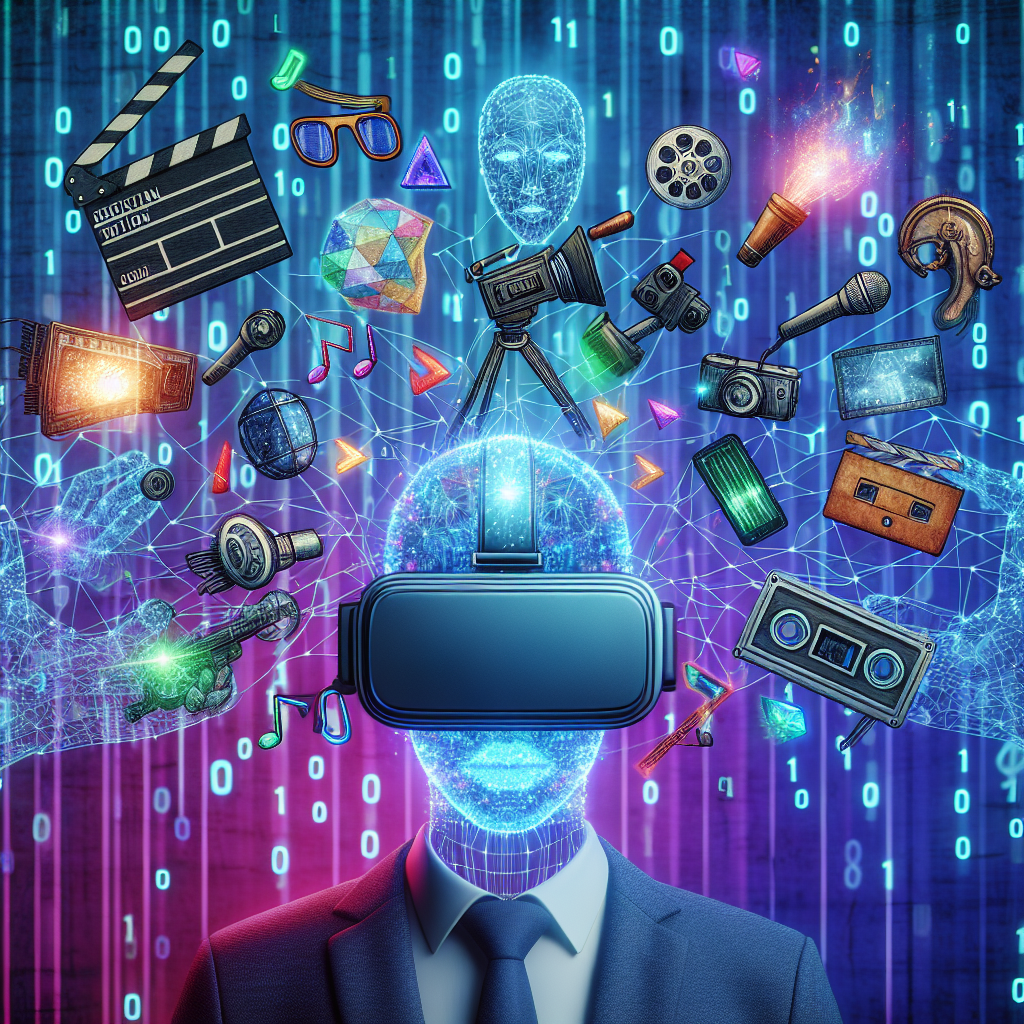In recent years, artificial intelligence (AI) has made significant advancements in various industries, including entertainment. AI tools are being used to create more engaging and personalized experiences for audiences, whether through music, movies, video games, or virtual reality. As AI technology continues to evolve, the future of AI tools in entertainment looks promising, with endless possibilities for innovation and creativity.
One of the key areas where AI tools are being used in entertainment is in content creation. AI algorithms can analyze vast amounts of data to identify trends and patterns, helping creators to develop content that resonates with their target audience. For example, AI-powered music composition tools can generate original music based on a specific mood or style, saving time and resources for artists and producers. Similarly, AI-generated scripts can help filmmakers and writers to brainstorm new ideas and develop storylines that are more likely to appeal to viewers.
AI tools are also revolutionizing the way content is delivered to audiences. Personalization has become a key focus for many entertainment companies, with AI algorithms being used to recommend movies, TV shows, and music that are tailored to individual preferences. Streaming platforms like Netflix and Spotify rely heavily on AI to analyze user behavior and provide personalized recommendations, increasing user engagement and satisfaction. In the future, we can expect AI tools to become even more sophisticated in predicting user preferences and delivering personalized content in real-time.
Another area where AI tools are making a significant impact in entertainment is in production and post-production processes. AI-powered editing software can automate tasks such as color correction, audio mixing, and special effects, allowing filmmakers to streamline their workflow and focus on the creative aspects of their projects. Virtual reality (VR) and augmented reality (AR) experiences are also benefiting from AI technology, with AI algorithms being used to create realistic environments and enhance immersion for users.
In the gaming industry, AI tools are being used to create more realistic and dynamic gameplay experiences. AI-powered game engines can generate procedural content, adapt difficulty levels based on player performance, and even create non-player characters (NPCs) that exhibit human-like behavior. This level of AI sophistication is transforming the gaming landscape, enabling developers to create more immersive and engaging games that push the boundaries of what is possible.
As AI technology continues to evolve, we can expect to see even more advancements in entertainment. From AI-powered virtual influencers to AI-generated storytelling, the possibilities are endless. However, with these advancements come questions and concerns about the ethical implications of AI in entertainment. Will AI tools replace human creativity and intuition? How can we ensure that AI algorithms are fair and unbiased in their decision-making processes? These are just some of the questions that need to be addressed as AI becomes more integrated into the entertainment industry.
FAQs:
Q: Will AI tools replace human creativity in entertainment?
A: While AI tools can assist in the creative process, they are unlikely to replace human creativity entirely. AI algorithms are trained on existing data and patterns, which limits their ability to come up with truly original ideas. Human creativity, on the other hand, is driven by intuition, emotion, and experience, making it difficult for AI to replicate.
Q: How can we ensure that AI algorithms are fair and unbiased in entertainment?
A: Ensuring fairness and unbiasedness in AI algorithms requires transparency, accountability, and ethical guidelines. Entertainment companies should regularly audit their AI systems to identify and mitigate biases. Additionally, diversity and inclusivity should be prioritized in the training data used to develop AI algorithms.
Q: What are some examples of AI tools in entertainment?
A: AI tools in entertainment include music composition software, recommendation algorithms on streaming platforms, AI-powered editing software for film and TV production, and AI-generated NPCs in video games. These tools are designed to enhance the creative process, improve user experiences, and streamline production workflows.
In conclusion, the future of AI tools in entertainment is bright, with endless possibilities for innovation and creativity. From content creation to delivery, production, and gaming, AI technology is transforming the entertainment industry in profound ways. As AI continues to evolve, it is essential for entertainment companies to address questions and concerns about ethics, bias, and the future of human creativity in the age of AI. By embracing AI tools responsibly and ethically, the entertainment industry can continue to push the boundaries of what is possible and deliver engaging experiences to audiences around the world.

